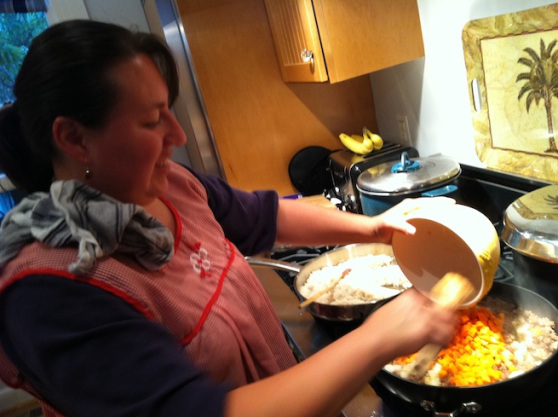
In the San Francisco Bay Area, food may be the only thing more sacred than technology.
Food is a less-talked-about but equally thriving avenue of entrepreneurship in the city. To support “entrepreneur development” and the budding slow-food (as opposed to fast-food) movement, new legislation approved in September and effective from the start of 2013, allows chefs to sell food cooked in a home kitchen.
The legislation aims to “supplement household incomes, prevent poverty and hunger, and strengthen local economies.”
AB 1616 or the California Homemade Food Law relaxes the rules around community-based food production in private kitchens, provided certain regulations are met. California is taking its lead from 32 other states that have already passed similar legislation.
Caleb Zigas, executive director of La Cocina, a San Francisco-based business incubator working to assist and support food entrepreneurs, said this will enable food entrepreneurs to “test the market.” If business is booming, he suggests renting commercial kitchen space. “If you’re looking to income-patch, it [the legislation] creates a great opportunity for that.” La Cocina works with budding chefs to convert small, family-run operations into self-sustaining businesses.
For a non-professional cook from a low-income household, it means avoiding some $35 an hour to rent space in a commercial kitchen. It’s a great way to pad a family income, and food can be sold in an online store or farmer’s market.
“California has been strict in the past, but this is a great opportunity for people who love to cook,” said Neka Pasquale, founder of Urban Remedy, a San Francisco-based meal and juice delivery service. Pasquale stressed that for certain food types, it’s necessary to rent commercial space from the outset — her business requires that some of the food be kept at a frigid temperature.
To qualify to start a cooking business from home, an individual or small business owner must run a “cottage food operation,” meaning they can retain only one non-family or household employee and generate no more than $35,000 in gross annual revenue. Cooks need a registration number to conduct direct and indirect sales from home, and their kitchen will need to meet health and safety regulations.
If the food has been cooked in a private kitchen, it should say so on the tin. The words “Made in a Home Kitchen” must boldly appear on the label, with the registration number, name of the product, producer, and ingredients. The new law does not extend to products containing meat or dairy but allows for items like baked goods, granola, jams, and dried fruit.
Image courtesy of The Peninsula Press

